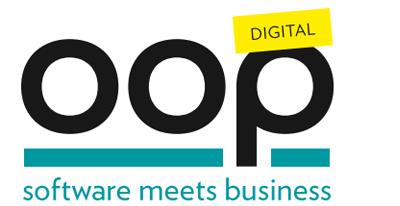- Deutsch
- Contact
- Newsletter

Conference Program
Please note:
On this site, there is only displayed the English speaking sessions of the OOP 2022 Digital. You can find all conference sessions, including the German speaking ones, here.
The times given in the conference program of OOP 2022 Digital correspond to Central European Time (CET).
By clicking on "EVENT MERKEN" within the lecture descriptions you can arrange your own schedule. You can view your schedule at any time using the icon in the upper right corner.
Track: Modern Software Architecture
- Dienstag
01.02. - Mittwoch
02.02.
Micro-Frontends eigenen sich nicht in allen Szenarien! Diese Session stellt einen alternativen Ansatz vor: Frontend-Modulithen. Wir besprechen das Abbilden fachlicher Domänen, die Kategorisierung von Bibliotheken sowie Zugriffseinschränkungen zum Erzwingen entkoppelter Teilsysteme. Außerdem nutzen wir inkrementelle Builds und einen Build Cache zur drastischen Beschleunigung des CI-Prozesses. Am Ende wissen Sie, ob Frontend-Modulithen für Sie der richtige Ansatz sind und wie Sie Ihre Anwendungen…
Imagine you have an enterprise frontend monolith. Due to explosive growth, around 30 teams work on it, with about 100 different use cases. How do you keep this system scalable and consistent?
That's the question we faced inside Partner Home at Wayfair. I'm going to share our experience implementing a micro frontend architecture based on React to distribute shared concerns as long-lived applications. We used module federation, a new feature in Webpack 5.
I'll talk about the general architecture,…
Software is often resistant to modernization efforts, no matter if it's about phasing out obsolete technologies, migration to the cloud, or establishing modern architecture. The culprit is usually a dependency or obsolete assumption that's too closely coupled to the codebase. But what's the underlying root cause of all that coupling? Often, it's shared, mutable, synchronous state. We will look at a real-world project, and we'll dig ourselves out of the hole it's dug itself into using…
The purpose of Serverless is to focus on writing the code that delivers business value and offload undifferentiated heavy lifting to the Cloud providers or SaaS vendors. Today’s code quickly becomes tomorrow’s technical debt. The less you own, the better it is from the maintainability point of view. In this talk I will go through examples of the various Serverless architectures on AWS where you glue together different Serverless managed services, significantly reducing the amount of the code…
The idea of looking at your organization as a single coherent system is tempting, but is it realistic? If it isn't, what does that mean for software developers, and how can we make discoverable what we are developing? This talk looks at organizations as ecosystems rather than as systems, and asks what that difference means for software development. It all boils down to focusing on software as components implementing business capabilities, and how to best capture these capabilities and make them…
